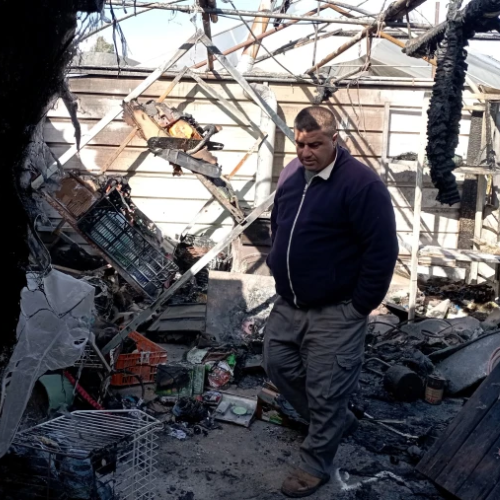In a major shift in U.S. policy, President Donald Trump recently removed sanctions targeting Israeli settler groups and associated entities in the occupied West Bank. These sanctions, introduced earlier by the Biden administration, aimed to restrict American dealings with settler groups accused of violence and to freeze their U.S.-based assets. The Biden administration’s executive order had specifically targeted individuals and groups accused of actions undermining peace and stability in the region.
However, this policy reversal has drawn widespread attention, as the White House announced the removal of these measures on Monday. Trump’s decision was celebrated by Israeli ultranationalist politicians, who claimed that the sanctions represented unwarranted interference in Israel’s internal affairs. The lifting of sanctions came shortly after Trump described Gaza as a “phenomenal location” during a series of executive orders he signed shortly after taking office.
Violence Erupts in the West Bank
Hours after the sanctions were lifted, violence erupted in the occupied West Bank. Israeli forces launched a large-scale military operation in the city of Jenin, with the government calling it a bid to “defeat terrorism.” According to Palestinian health authorities, at least seven people were killed and over 35 injured during the offensive. Israel’s Prime Minister described the military operation, named “Iron Wall,” as an effort to restore security to the region.
Trump’s Reversal of Biden’s Sanctions on Israeli Settlers: A New Direction
Meanwhile, in a shocking incident, masked settlers attacked a Palestinian village called Al-Funduq, setting property on fire and causing extensive damage. The Israeli military stated that troops sent to contain the situation were also attacked by the settlers, who reportedly hurled rocks at soldiers. The clashes have led to a joint investigation by Israeli authorities, though no arrests were immediately reported.
These events come against the backdrop of escalating violence in the West Bank. The region has seen an increase in confrontations between settlers, Palestinian residents, and Israeli forces, with restrictions on Palestinian movement intensifying. According to the United Nations, entire communities in the West Bank are being confined due to newly installed barriers and checkpoints.
Rising Casualties in the Region
The West Bank and Gaza Strip have seen staggering levels of violence in recent months. The conflict began escalating in October 2023 when coordinated attacks by Hamas killed over 1,200 Israelis and resulted in the kidnapping of approximately 250 people. Since then, Israel’s military response in Gaza has resulted in the deaths of over 47,000 Palestinians, according to health authorities in the enclave.
The violence has extended into the West Bank, where the United Nations reports a sharp rise in casualties. In the year before the October attacks, 253 Palestinians and 33 Israelis were killed in the West Bank. Since then, the numbers have surged, with 828 Palestinians and 28 Israelis reported killed in the territory. The uptick in violence has coincided with heightened activity by Israeli settlers, who have been involved in numerous incidents of arson, property destruction, and violence against Palestinians.
US Targets Israeli Settler Group with Sanctions for West Bank Violence
International Reactions and Tensions
The removal of U.S. sanctions appears to have emboldened ultranationalist politicians in Israel. Officials described the military operation in Jenin as a step toward “changing the security perception” of the region. These actions have drawn criticism from international organizations, including the United Nations, which has expressed alarm over the ongoing violence and the worsening humanitarian situation.
For decades, the international community has largely considered Israeli settlements in the West Bank illegal under international law, a position Israel disputes. Since the region’s occupation by Israel in 1967, settlement construction has expanded, creating deep tensions with the Palestinian population. The Biden administration had sought to reassert the illegality of settlements, but this stance was reversed by Trump during his presidency, and it appears to have been reaffirmed by his most recent decision to lift sanctions.
The volatile situation in the West Bank has continued to evolve, with both sides suffering significant losses. However, the recent violence highlights the complexities of the conflict and the potential consequences of shifting policies on one of the world’s most long-standing disputes.


